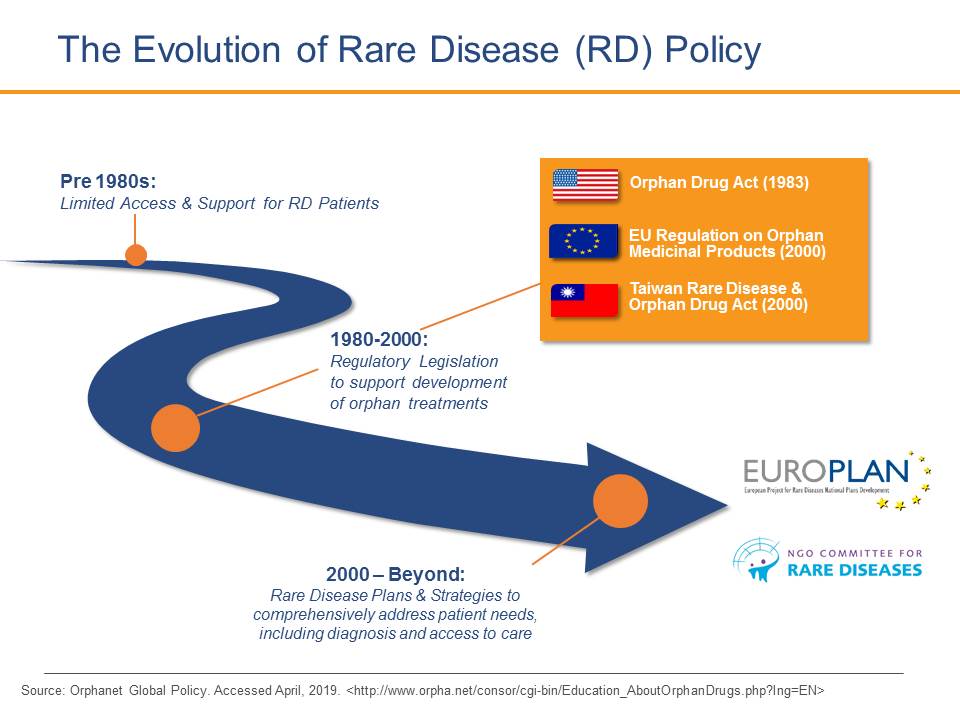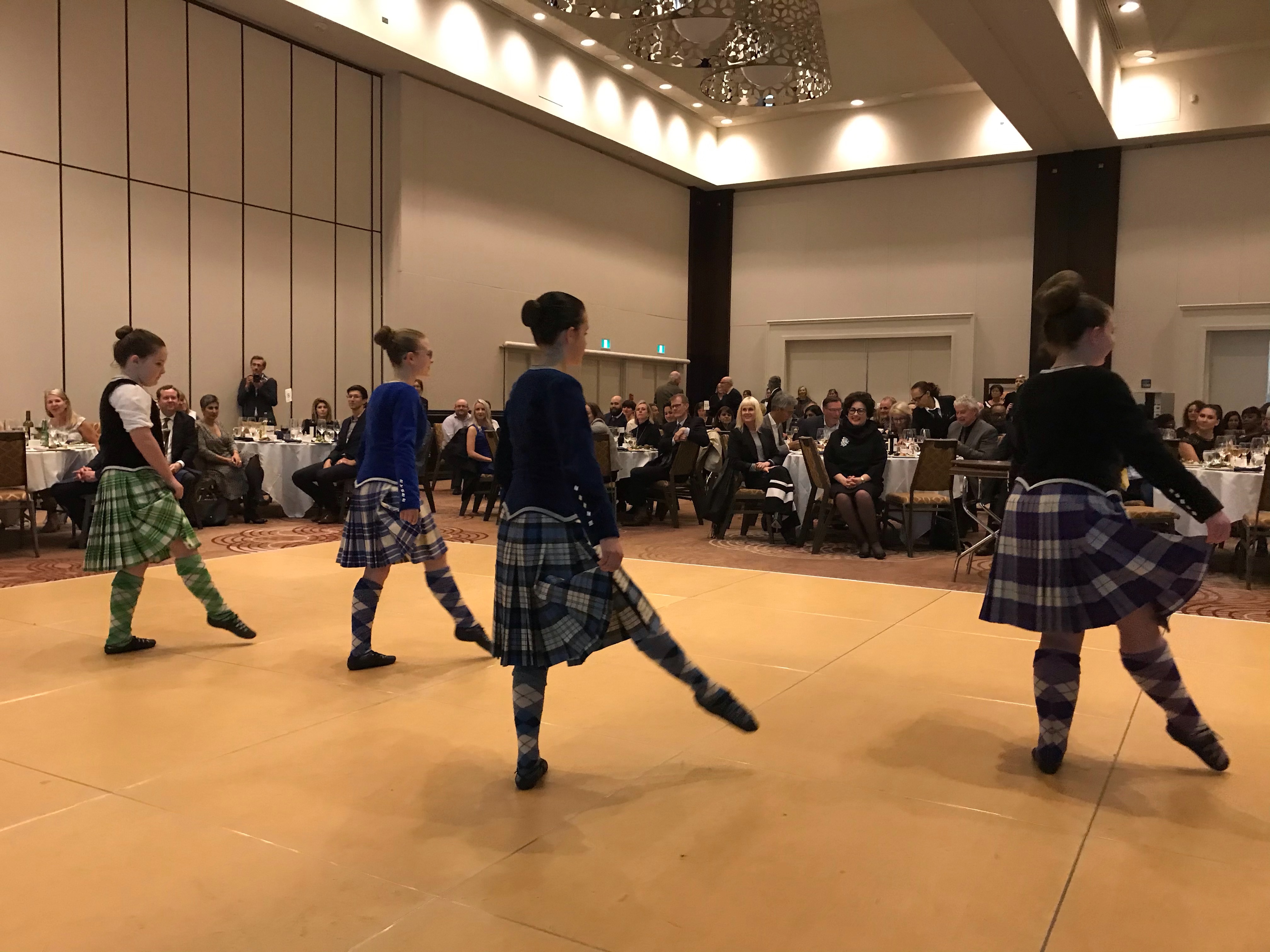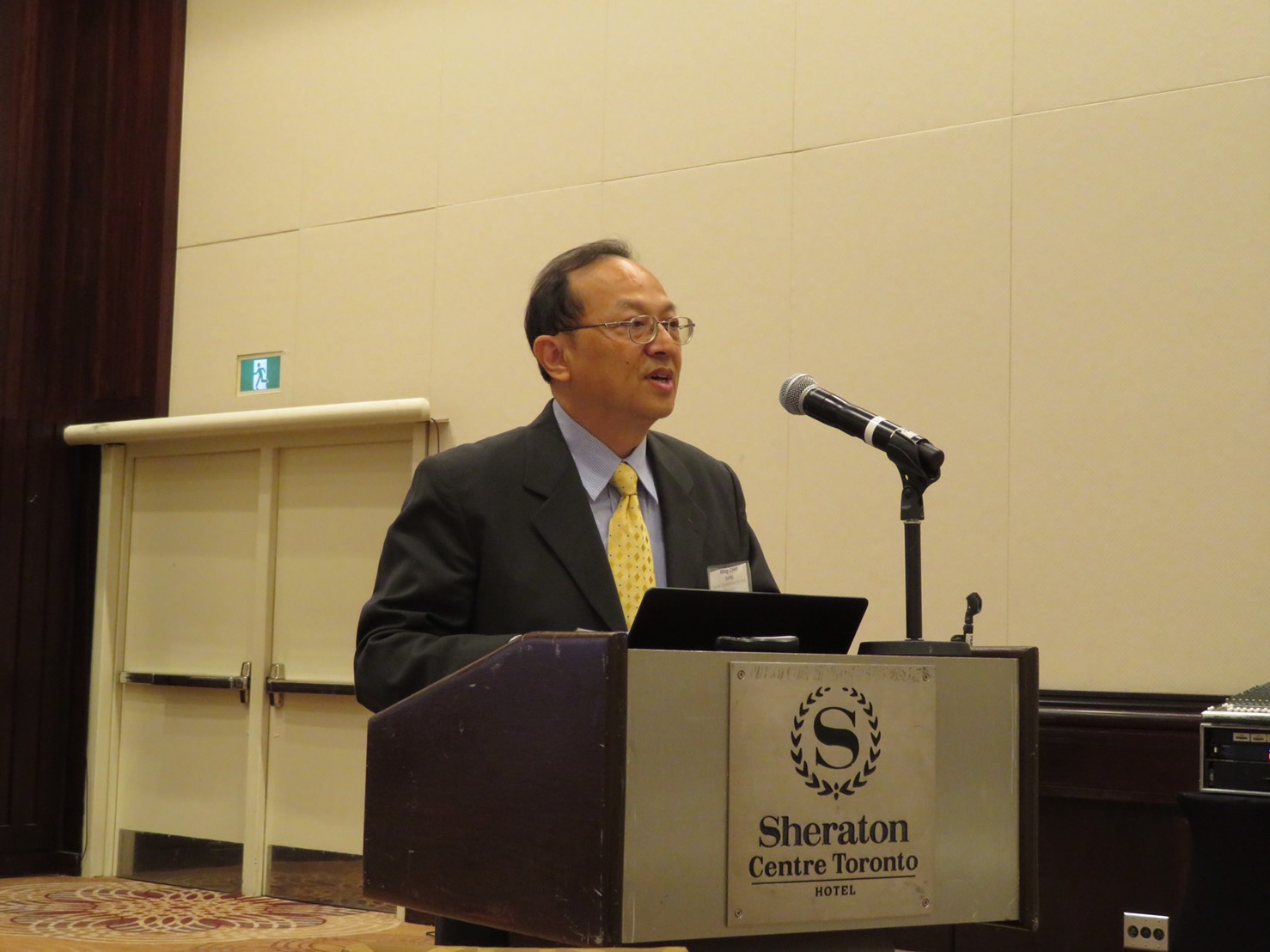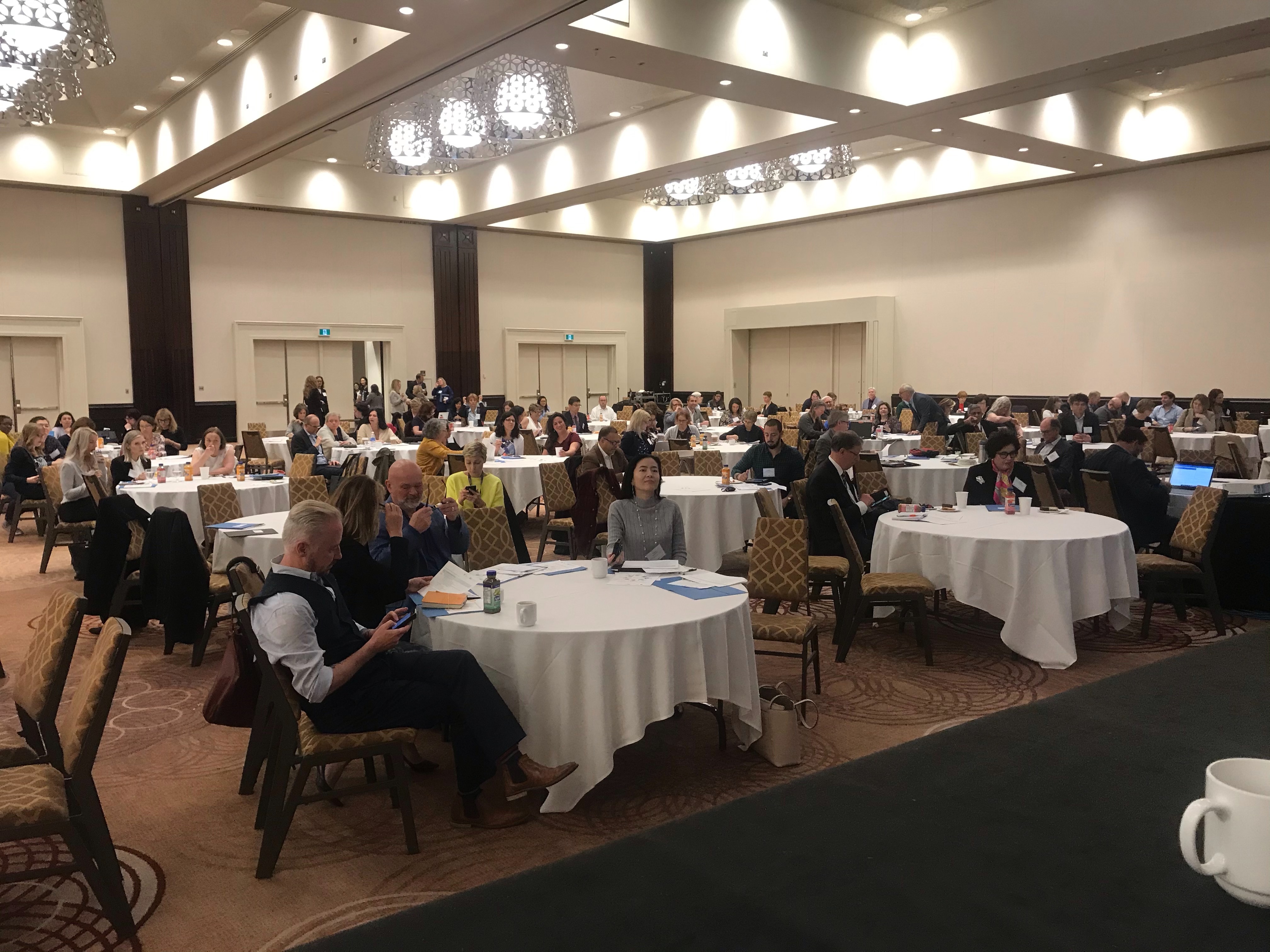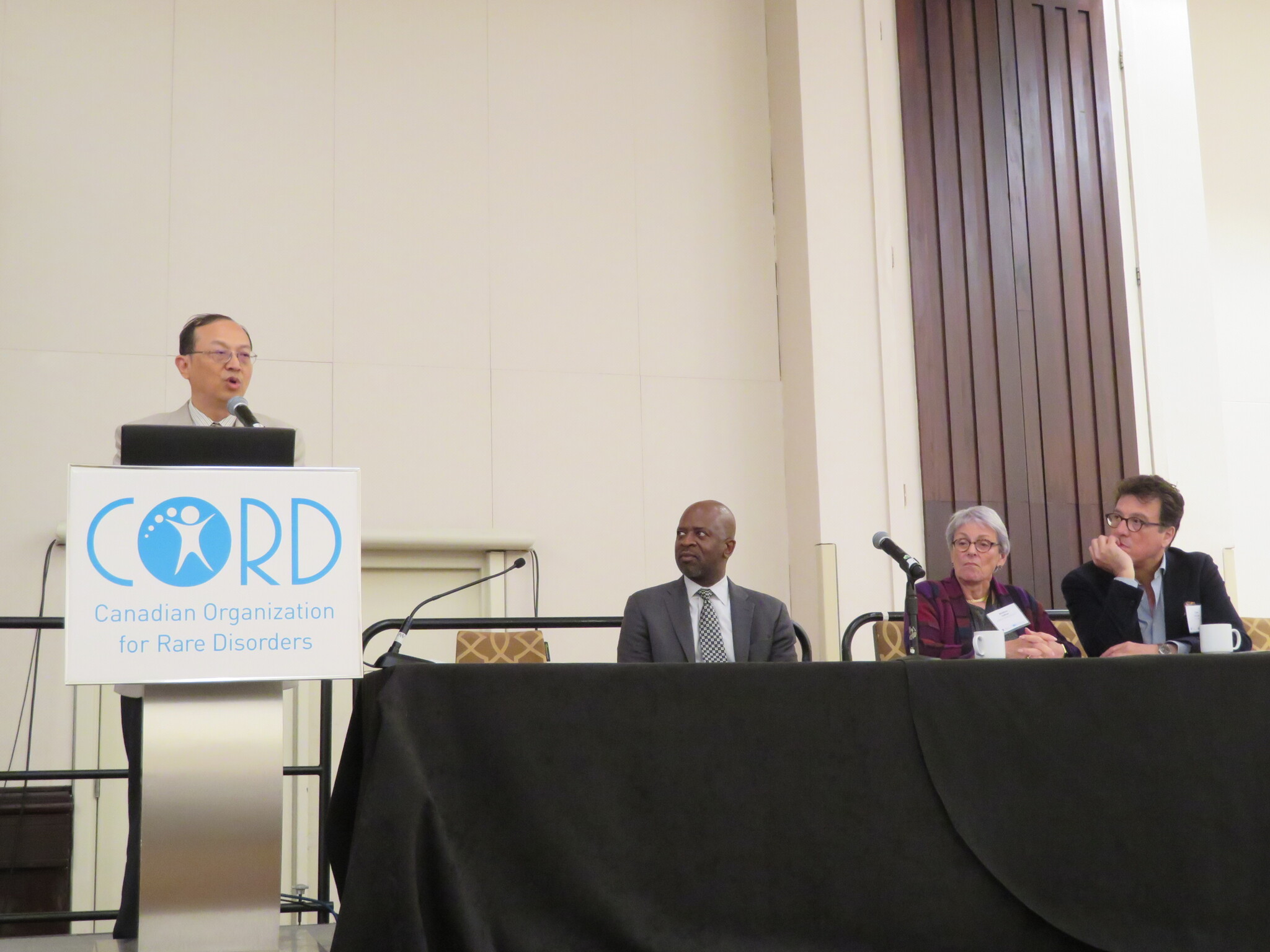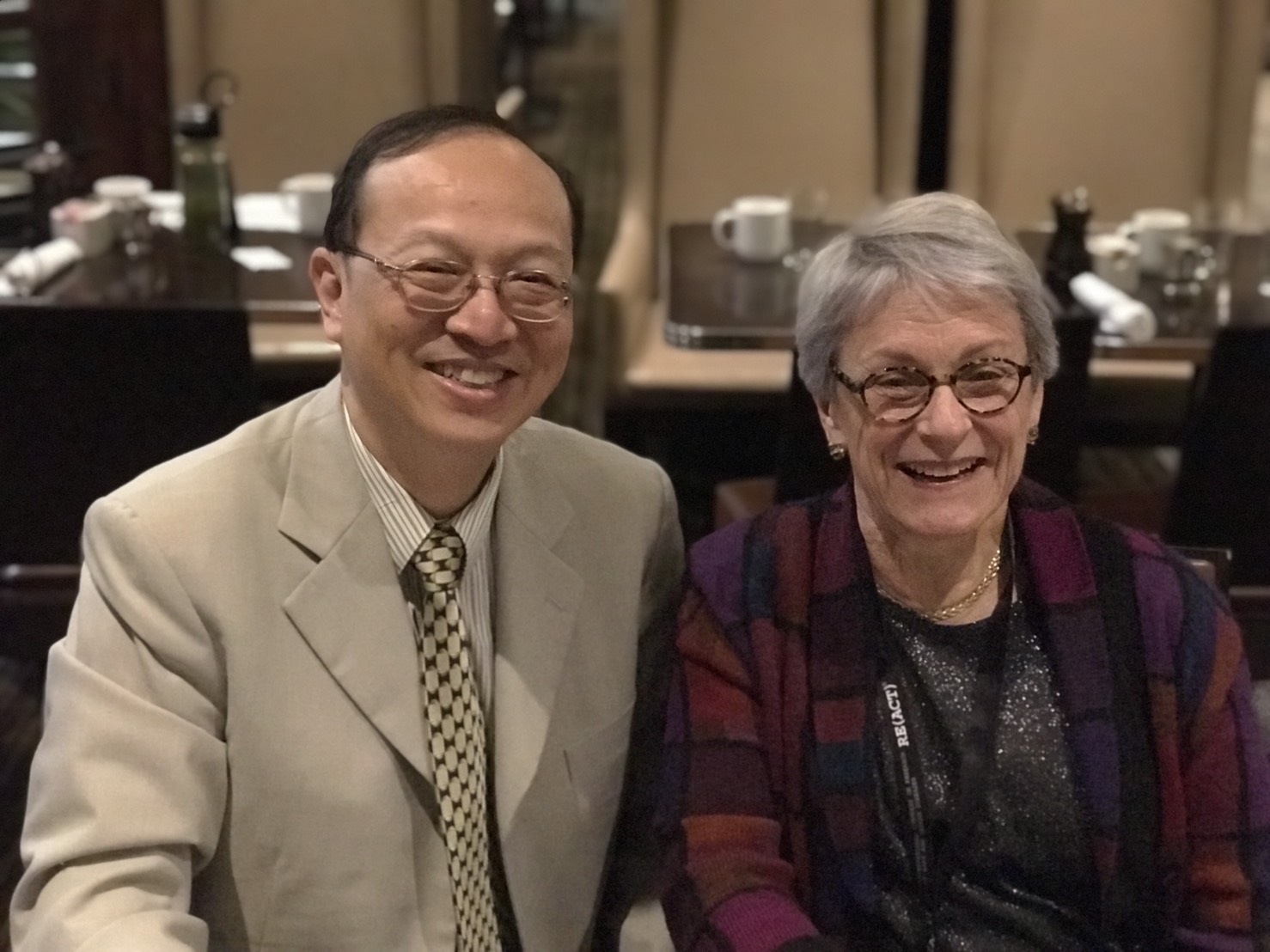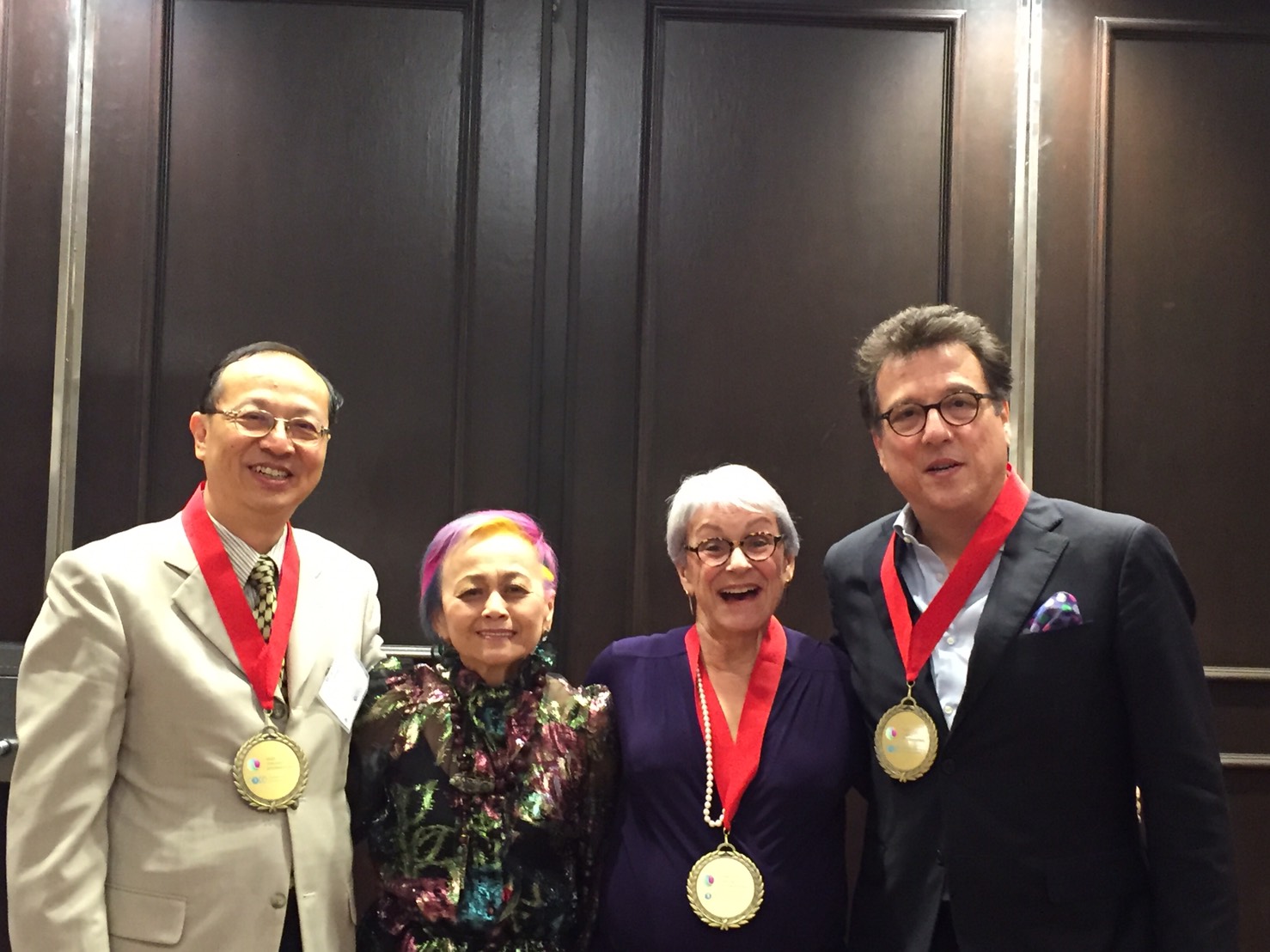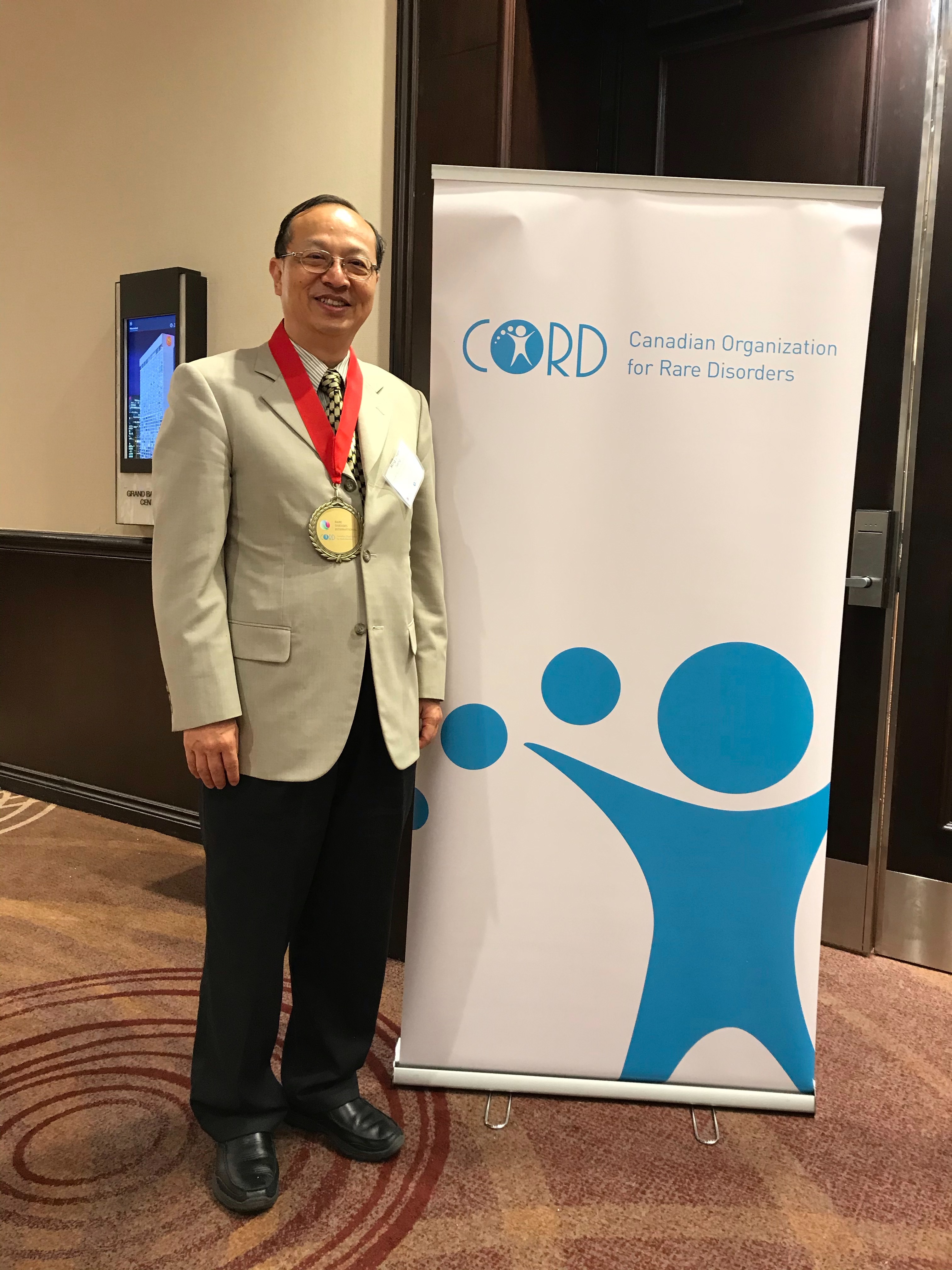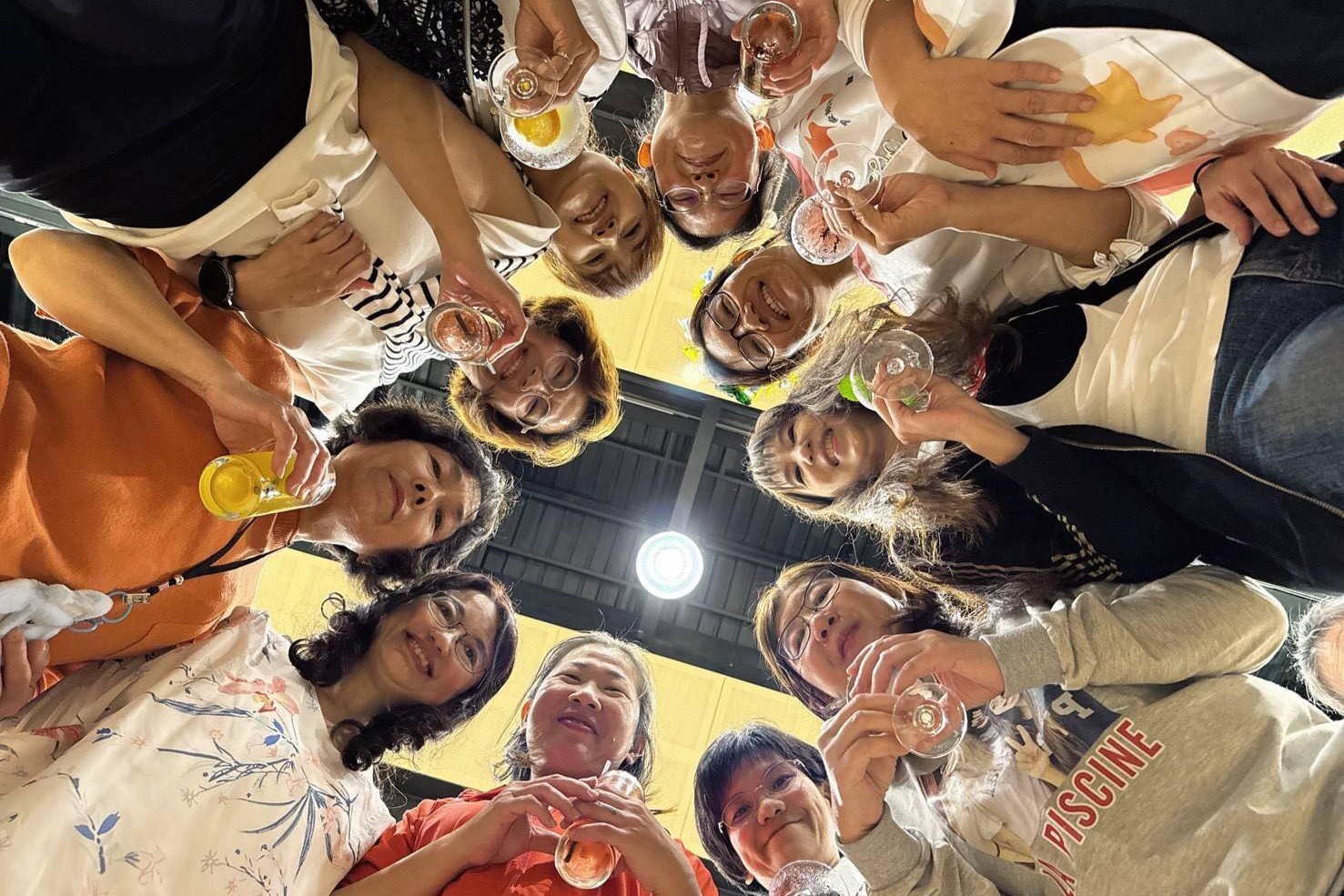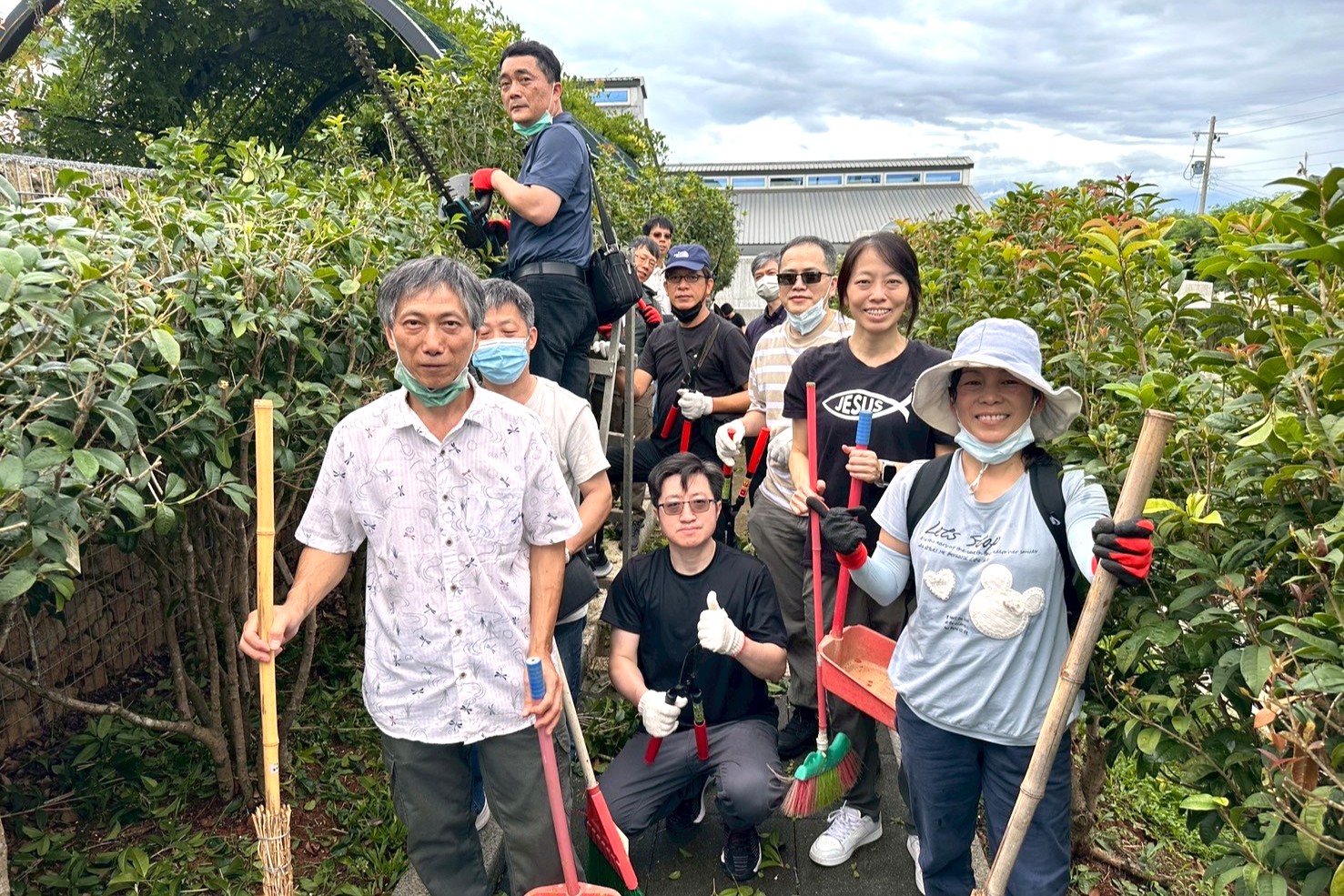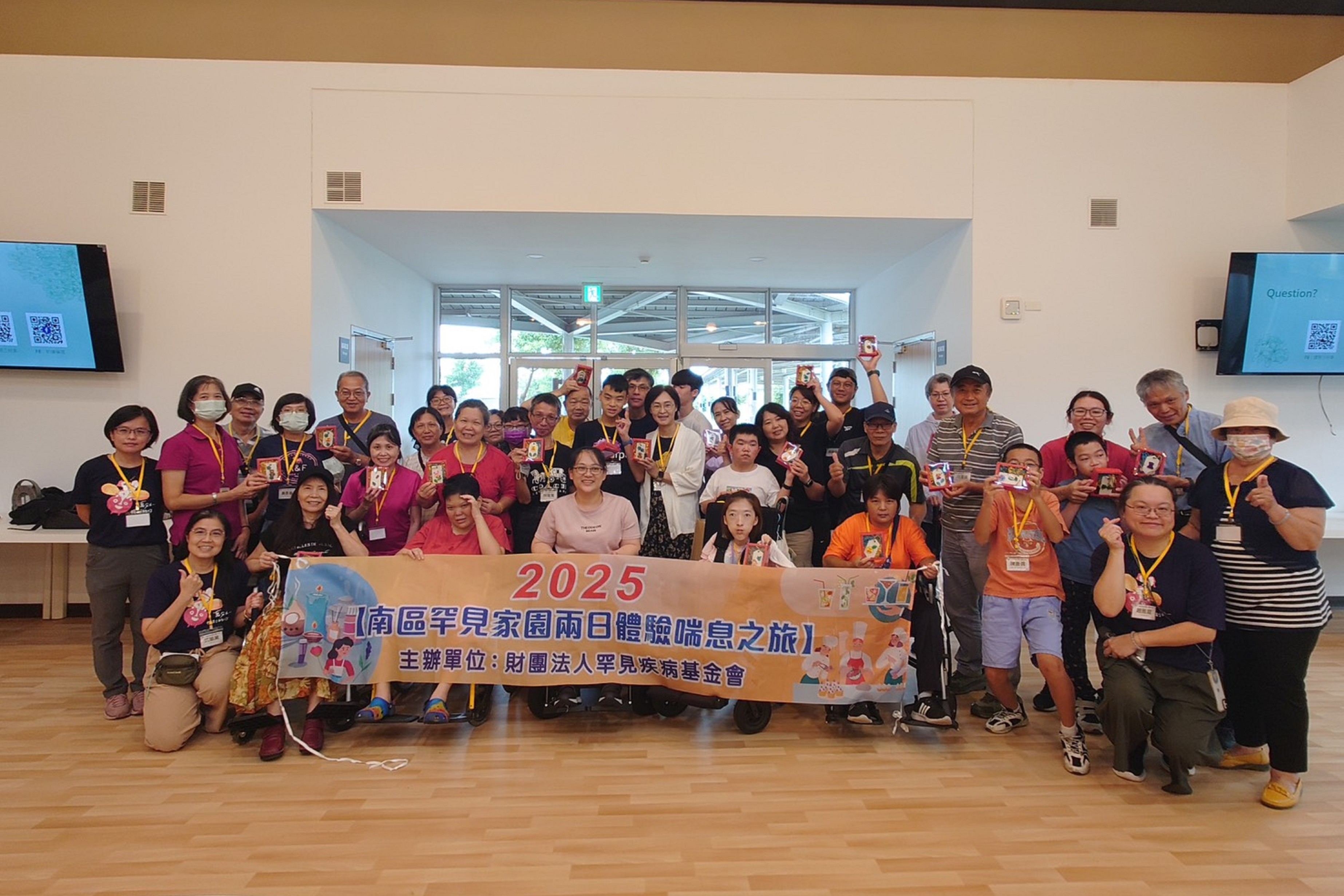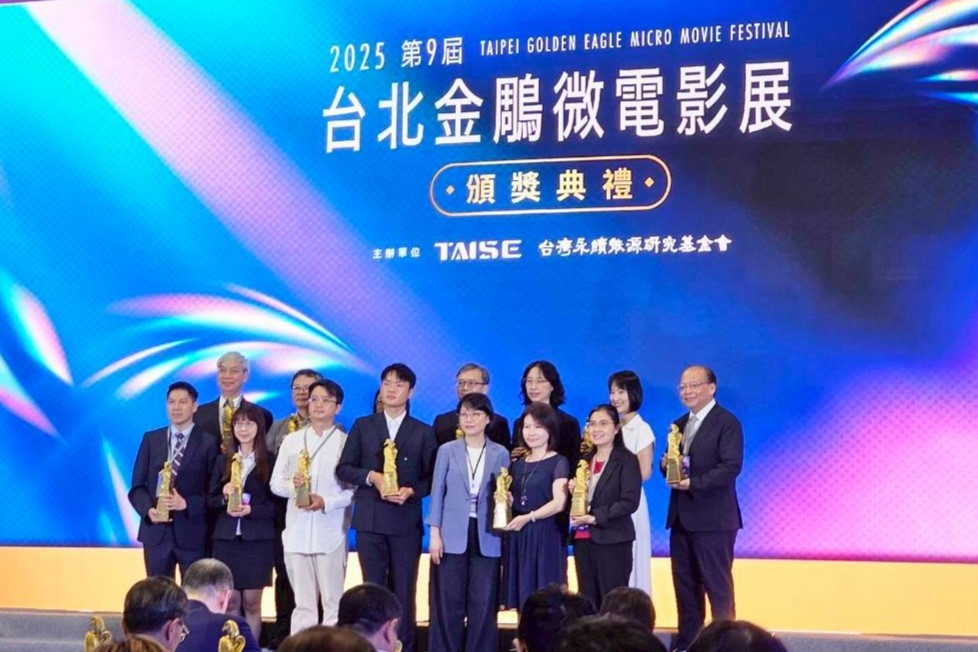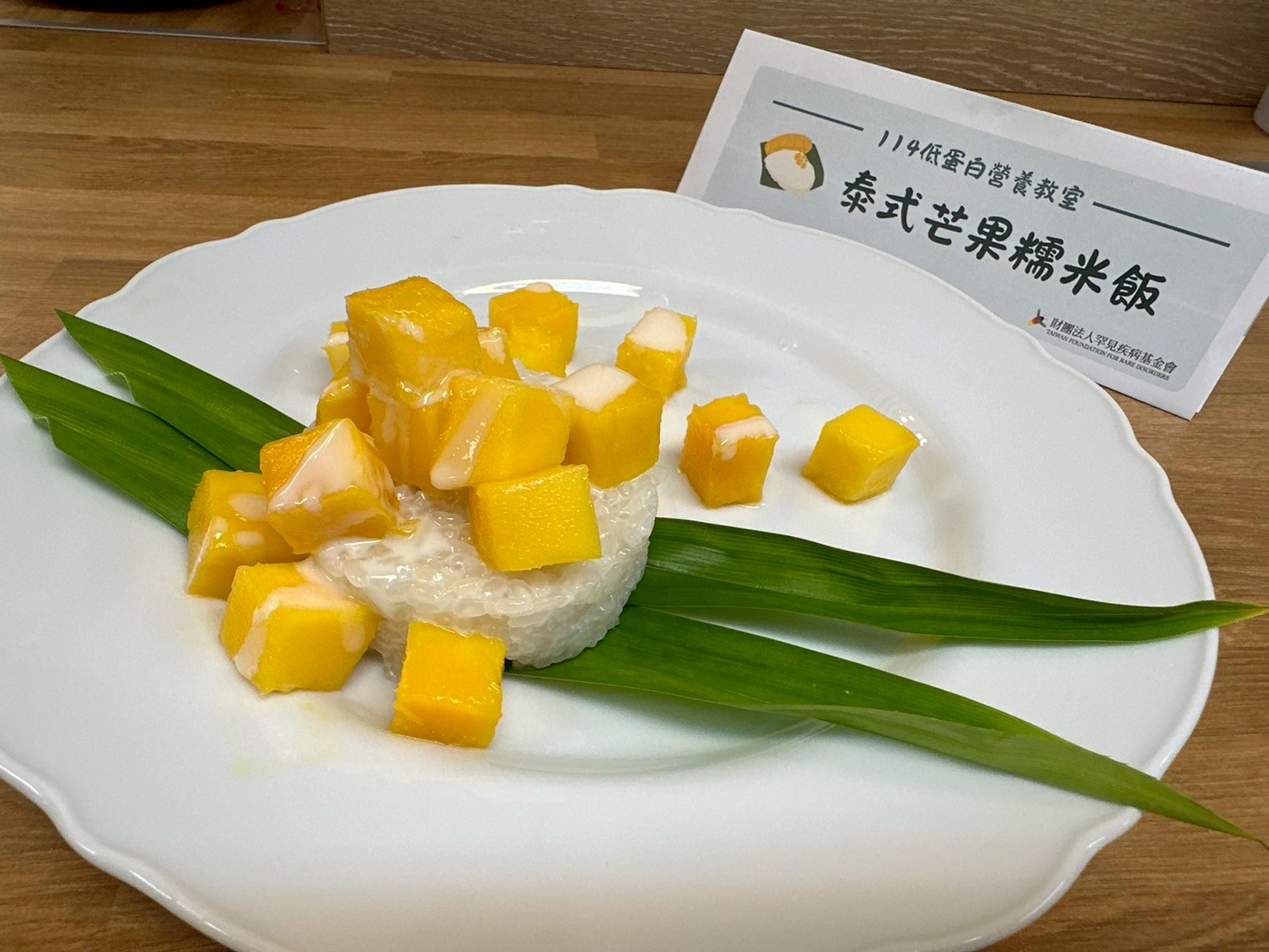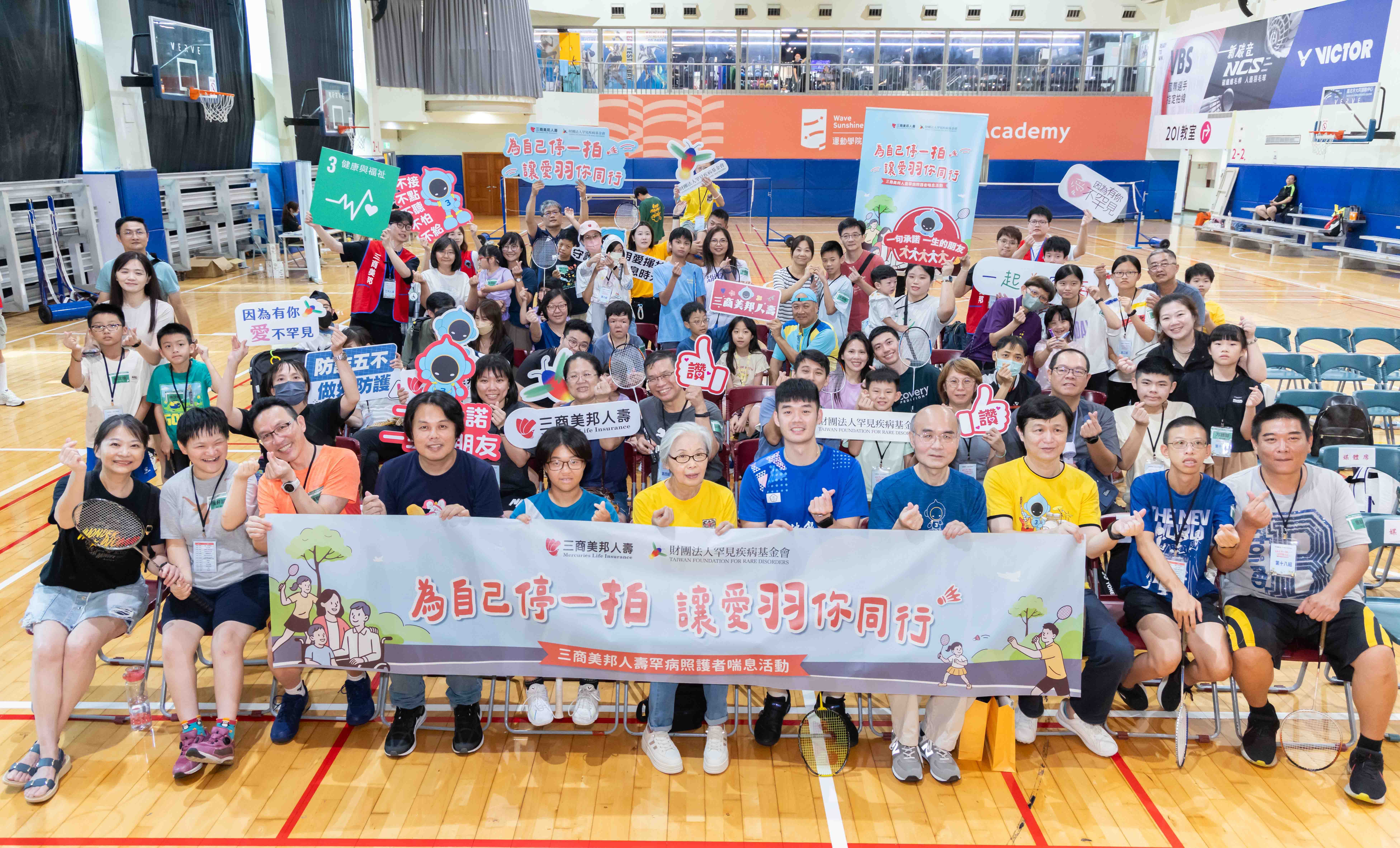News
Min-Chieh Tseng Honored With Internation Rare Hero
The Rare Disease International (RDI) and Canadian Organization for Rare Disorders (CORD) co-organized the International Rare Disease Conference "A Rare International Dialogue" at the Sheraton Hotel in Toronto, Canada from May 10 to 12, 2019. More than 400 attendants from all over the world who belonged to the political, medical, pharmaceutical, academic, patient organizations, advocacy organizations, and charitable organizations participated.
The conference was chaired by Dr. Durhane Wong-Rieger, who is also the Chairman of RDI and President & CEO of CORD. The opening ceremony praised 4 panelists who have made outstanding contributions to the development of rare diseases around the world, including Yann Le Cam, the CEO of EURORDIS, Marlene Haffner, former Director of the Office of Rare Drug Development of FDA, Min-Chieh Tseng, the co-founder of the Taiwan Foundation for Rare Disorders (TFRD), and Anders Olauson, founder of the Ågrenska Centre. The awards were presented at the gala dinner that day, RDI and CORD jointly presented the International Rare Hero Award to 4 winners.
RDI, headquartered in Geneva, Switzerland, is the global alliance of Persons Living with a Rare Disease of all nationalities across all rare diseases. Its mission is to be a strong common voice for people living with a rare disease around the world, and currently has more than 50 organization members from more than 30 countries, indirectly covers many groups of patients with rare diseases in more than 100 countries.
CORD is Canada's national network for organizations representing all those with rare disorders. It provides a strong common voice to advocate for health policy and a healthcare system that works for those with rare disorders. At present, one of the 12 Canadians is a rare disease patient. Many patients or high-risk patients have not received the correct diagnosis or any information. Therefore, CORD focuses on providing research, diagnosis, treatment and services for all rare disorders in Canada.
TFRD was established in 1999 by Mrs. Serena C. Wu and Professor Min-Chieh Tseng was the co-founder, Prof. Tseng also served as the CEO, Vice Chairman, and Chairman of TFRD. For the past 20 years, he has led TFRD to initiate social legislation and policy advocacy, and provide a comprehensive social service programs for patient and their family all over Taiwan. The results of these initiatives have also made Taiwan a global model.
Prof. Tseng is a visionary person, he promoted the Second-generation Newborn Screening since 2002. In 2005, 81% of newborns done this screening at their parents’ own expense, and between 2002 to 2005, 105 children with rare diseases with metabolic abnormalities were screened in advance, avoiding the risk of death and affecting their intelligence. At the same time, he also prompted the government to add new screening programs and expand the implementation of newborn screening in 2006. In addition, between 2010 to 2012, Prof. Tseng actively exchanged experiences between cross-strait in view of the similarity of genetic diseases, and shared the public-private achievements of rare diseases in Taiwan with Beijing, Shanghai and Guangzhou in China.
Prof. Tseng’s role as a patient’s parent, a professor of social work, and the CEO of TFRD is the portrayal of his advocacy from 1998 to 2018. He was even forward-looking to the true needs of patients. They need social services rather than the medical services. Tseng use academic training to urge advocacy and lead TFRD do the right thing in the right direction.
The commendation ceremony on May 10th was chaired by Bert Bruce, Vice President of Pfizer. This time Prof. Tseng’s report did not have the same political interference as last time he went to the United Nations to report in November 2016. The host Bert Bruce even prepared a slideshow on his own to projected the flag of the Republic of China (Taiwan) on the screen, juxtaposed with the flags of the European Union and the United States. It also showed the historical roles of these three countries and organizations in the development of international rare diseases, made Taiwan left a strong impression on everyone.
In Prof. Tseng’s acceptance speech, he reviewed his efforts over the past 20 years with TFRD. Through the cases in Taiwan, he explained the importance of grassroots disease organizations in advocacy. This view was echoed by the muscular dystrophy advocate Tori Lacey, and Sherry Caldwell, co-founder of the Ontario Disability Coalition in the next session. After the celebration, the host Bert Bruce sent a congratulations message to Prof. Tseng: “It was an absolute pleasure getting to meet you, and an honor to facilitate the session. Thank you for being a true hero for the Rare Disease community.”
The opening banquet invited student dancers to perform, bringing a warm atmosphere to the gala dinner. The conference first introduced the honorary deeds of the four winners one by one, and then invited the winners to the stage to accept the medal award from the chairman of CORD, Wayne Critchley. Every winner gave an acceptance speech. Prof. Tseng published his observations and thoughts on promoting the rare disease initiative in Taiwan over the past 20 years under the title "My Feeling of being a Hero", mainly emphasizing the importance of advocacy and service to rare patient organizations.
Regarding the award, Prof. Tseng said, "This is not only a personal honor, but an honor of TFRD, and even an honor of Taiwan; without the persistence of personal philosophy, the social role of TFRD, and the concern of Taiwanese society for the disadvantaged, we cannot develop a complete social system to care for extremely disadvantaged person with rare diseases, and even become a global model. We see from every perseverance patient that they always accept everything in life quietly and without complaining. From another perspective, they are the real Heroes! "
Translator: Joy Yin
----------
My Feeling of being a Hero
Min-Chieh Tseng
Co-founder, Taiwan Foundation for Rare Disorders
Dean, College of Social Sciences, National Taipei University
In 1998, when I started to advocate for the right of patients with rare disorders in Taiwan. I know that I can get it done, but I don’t know “when” I can succeed. The reason is that even though we were doing the right thing, and many people would like to help, they lack the knowledge of “how” they can help. It means that we need to prepare for a plan, which makes it simple for our supporters to choose the suitable way of supporting, in terms of donation, volunteers, ideas, friendship, or connection. The more we can get from the society, the more we can influence the government through advocacy as well as to provide services to patients.
Thus, I always believe that both “Advocacy” and “Service” are two major purposes for patient groups.
For advocacy, I know that the target is the “Government,” because only government has the resources to solve the difficulties faced by patients. However, “Advocacy” is a long way to go, and we need “impatience of the patient.” We are impatient for the reason that life might be so short for rare disorders. Also, we need to be patient because the social structure is hard to be changed. So, it means that we need a “strategy” to influence the government.
For service, as a leader of Taiwan Foundation for Rare Disorders (TFRD), I emphasize those social services rather than medical services. Considering the following situations: there are several thousand kinds of rare disease in the world; an effective orphan drug might take more than 10 years to be developed or even longer; while only few orphan drugs have been developed; the price of orphan drugs are also too expensive for patients. Based on those information, you can tell, most of the patients we serve might have no effective drugs or treatment developed until very late in their lives.
TFRD has about 6,000 patient members now. Unfortunately, 1,000 patient members have passed away in the past 20 years. Without effective treatments, our patients still need friends, love, family, marriage, fertility, recreation, education, employment, counselling, and so on. That’s why we provide a comprehensive social service programs for patient and their family.
Finally, I would like to share this award with my partner Serena Wu, with TFRD, with Taiwan, and with those who have helped us to do the right thing. Thanks for this award.

